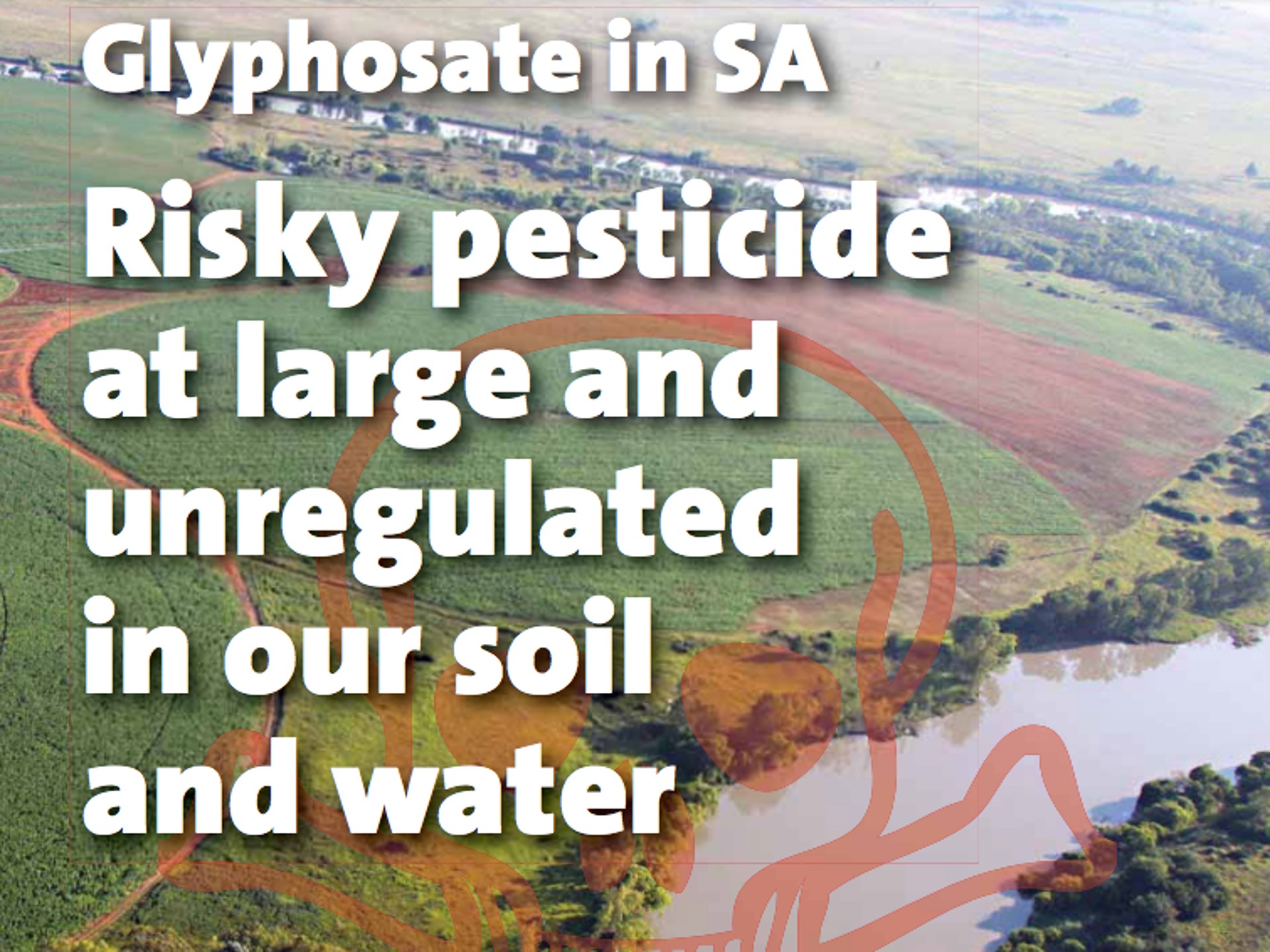Latest Resources

18 November 2013
Giving With One Hand and Taking With Two: A Critique of AGRA’s African Agriculture Status R...
The African Centre for Biosafety (ACB) has released a comprehensive critique of a report published by the African Alliance for a Green Revolution in Africa (AGRA). The analysis of AGRA’s African Agriculture Status Report 2013 reveals that AGRA’s vision is premised on Public-Private Partnerships in which African governments will shoulder the cost and burden of […]

23 October 2013
Africa bullied to grow defective BT Maize: the failure of Monsanto’s M810 maize in South Af...
The African Centre for Biosafety (ACB) has released a new report ‘Africa bullied to grow defective Bt Maize: the failure of Monsanto’s MON810 maize in South Africa,’ showing how Monsanto’s GM maize which utterly failed in SA, is now being foisted on the rest of the continent, through ‘sleight of hand.’ Read here.

8 June 2013
ACB’s comments on the Plant Breeders Rights Bill
We are grateful to the Department of Agriculture, Forestry and Fisheries for allowing us the opportunity to attend the stakeholder workshop on the 22nd of May 2013 and for inviting us to submit our comments on the Plant Breeders’ Rights Bill. We are also pleased to note that the DAFF has indeed taken on board […]

8 June 2013
Comments by the African Centre for Biosafety on SA’s Plant Improvement Bill
According to the United Nations Food and Agricultural Organisation (UNFAO), over the course of the 20th century, 75% of the world’s plant genetic diversity was lost, as local varieties and land races have been replaced with genetically uniform seed. A similar process in animal husbandry has put 53% of all livestock breeds at risk of […]

4 June 2013
Tiger Brand snubs consumers on GM Purity baby food concerns
Baby FoodTiger Brands has snubbed South African consumers who petitioned the company about high levels of genetically modified (GM) maize found in Tiger Brand’s Purity baby food products. In April 2013 GMO watchdog organisation, the African Centre for Biosafety (ACB), sent two Purity products to an independent GMO testing laboratory to test for the presence […]

4 December 2012
ACB Comments on National Strategy on Agroecology
The Department of Agriculture is in the process of developing a Strategy for Agroecology for South Africa, with the aim of achieving “an ecologically, socially and economically sustainable agro-ecology sector that contributes towards poverty alleviation, job creation, food security, economic development, climate change mitigation and adaptation”. It is not clear where the drive for this […]

27 November 2012
Harmonisation of Africa’s seed laws: death knell for African seed systems
The African Centre for Biosafety (ACB) has released its new report titled, ‘Harmonisation of Africa’s seed laws: a recipe for disaster- Players, motives and dynamics. The report shows how African governments are being co-opted into harmonising seed laws relating to border control measures, phytosanitary control, variety release systems, certification standards and intellectual property rights, to […]

23 November 2012
Harmonisation of Africa’s seeds laws: a recipe for disaster
The core of the paper is focused on the pressures being exerted on African governments to adopt the 1991 Act of the International Union for the Protection of Plant Varieties (UPOV), particularly through regional harmonisation of plant variety protection (PVP) policies and laws. We also discuss the adverse impacts PVP laws will have on the […]

8 October 2012
Glyphosate in SA: Risky pesticide at large and unregulated in our soil and water
The research shows that although glyphosate (a weed killer) is ubiquitous throughout South African agriculture, it poses many environmental risks and yet there is precious little research done to monitor and manage its environmental impacts. Read more here.

15 September 2012
Alliance for a Green Revolution in Africa (AGRA): laying the groundwork for the commercialisation...
We consider AGRA’s broad philosophy and structure, focusing on AGRA’s own views or those of its consultants, before turning to a more detailed consideration of its specific work in the Programme for Africa’s Seed Systems (PASS) and, in slightly less detail, its Soil Health Programme (SHP). These programmes are inseparable because seed and soil fertility […]
